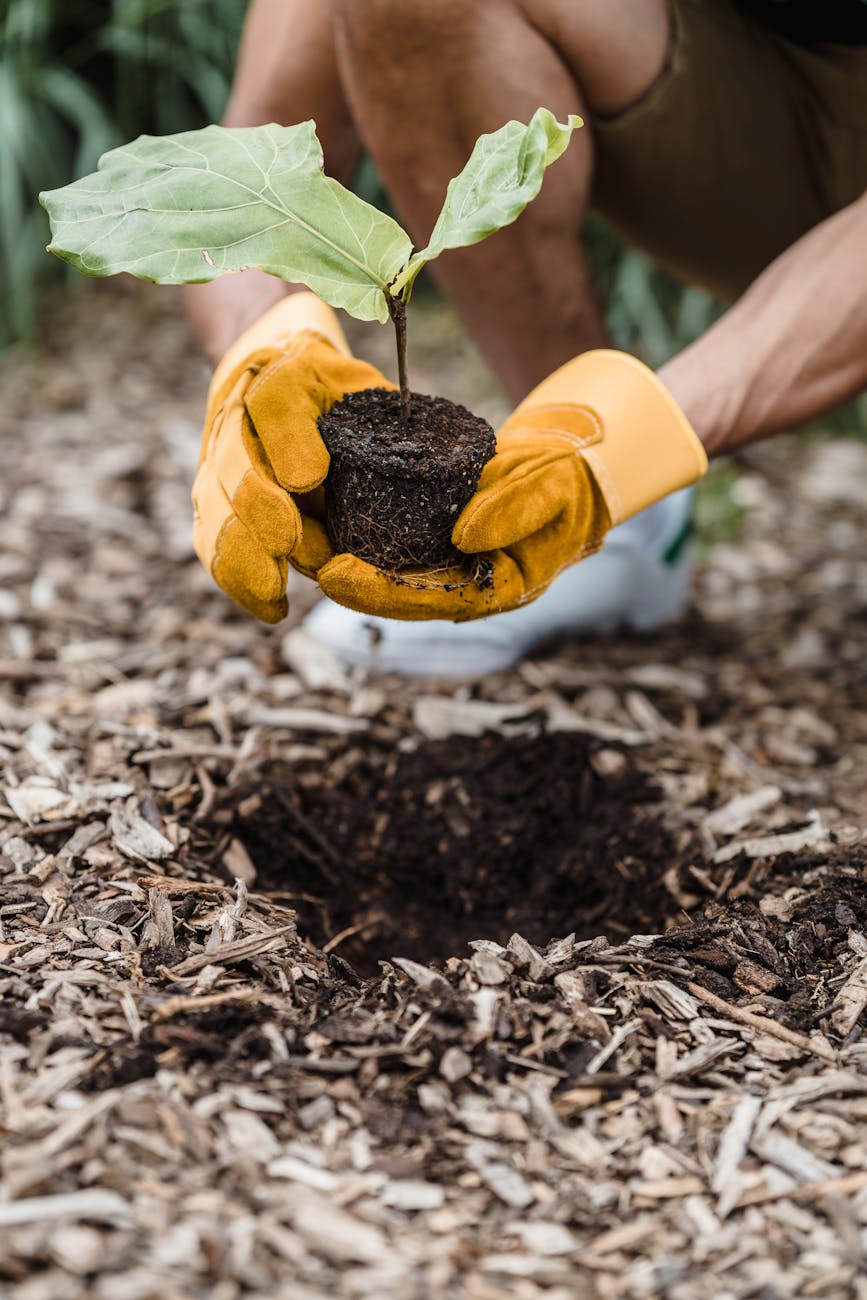Title: The importance of mulching in agriculture, advantages and disadvantages.
Table of Contents
- Meaning of mulching in agriculture
- Types of mulching in agriculture
- Importance of mulching in agriculture
- Effects of mulching
- Advantages of mulching in agriculture
Introduction
Discover the benefits and importance of mulching in agriculture! Learn about types, importance, effects, advantages, and disadvantages to boost crop yields, improve soil health, and practice sustainable farming.
The Complete Guide to Mulching in Agriculture: Types, Importance, Effects, Advantages, and Disadvantages
Mulching is a common practice in agriculture that involves covering the soil around plants with various materials. It plays a key role in enhancing crop growth and soil health. This guide will cover the types, importance, effects, advantages, and disadvantages of mulching in agriculture.
See Also
- Effects Of Ridging in Agriculture, advantages and disadvantages
- Tillage in Agriculture, Types, importance and implements
- Soil Preparation for Root crops: steps for great harvest
What is Mulching?
Mulching is the process of covering soil with organic or inorganic materials to retain moisture, regulate soil temperature, control weeds, and prevent soil erosion. This technique not only improves crop yield but also contributes to sustainable farming by reducing the need for chemical fertilizers and pesticides.

Types of Mulch
Mulches are broadly categorized into organic and inorganic types:
1. Organic Mulch
- Straw or Hay: Commonly used for vegetable gardens; decomposes, adding organic matter to the soil.
- Wood Chips or Bark: Good for perennial plants but can temporarily reduce nitrogen in soil as they decompose.
- Grass Clippings: High in nitrogen; suitable for crops that need nutrient-rich soil.
- Compost: Adds nutrients and improves soil structure.
- Leaves: Easily available, decomposes quickly, enriching the soil.
2. Inorganic Mulch
- Plastic Mulch (Polyethylene Film): Common in commercial agriculture to control weeds and retain soil moisture.
- Rubber Mulch: Made from recycled tires; effective in retaining soil warmth but doesn’t decompose.
- Gravel or Stones: Ideal for arid regions to reduce water loss; used around perennial plants.
- Geotextiles: Permeable fabrics that allow air and water to reach the soil while suppressing weeds.
Importance of Mulching in Agriculture
Mulching provides a range of benefits that contribute to sustainable agriculture:
- Moisture Retention: Mulch reduces evaporation, maintaining consistent soil moisture for optimal plant growth.
- Weed Suppression: Mulch acts as a barrier, preventing sunlight from reaching weed seeds and reducing weed growth.
- Temperature Regulation: In winter, mulch insulates soil to keep it warmer, and in summer, it prevents soil from overheating.
- Soil Erosion Control: Mulch reduces the impact of rain and wind on soil, helping to prevent erosion.
- Nutrient Enrichment: Organic mulches break down over time, adding essential nutrients to the soil.
Effects of Mulching
The effects of mulching on agricultural practices and outcomes can be substantial, including:
- Increased Crop Yields: By maintaining optimal soil conditions, mulching can lead to better root development and higher yields.
- Enhanced Soil Health: Organic mulches improve soil structure and microbial activity, promoting healthier crops.
- Water Conservation: Mulching reduces the need for frequent irrigation, especially important in areas facing water scarcity.
- Improved Aesthetics: For ornamental plants and landscaping, mulch creates a neat, attractive appearance.
Advantages of Mulching
- Conserves Water: Mulching significantly reduces water loss, making it ideal for regions with limited water resources.
- Reduces Soil Erosion: A protective layer prevents soil from being washed or blown away.
- Improves Soil Quality: Organic mulches add organic matter, enhancing soil fertility and structure.
- Increases Root Health: Roots grow better in cooler, moist soil provided by mulching, promoting healthy plants.
- Prevents Weed Growth: Mulching suppresses weeds, minimizing competition for water and nutrients.
- Saves Time and Labor: With less frequent watering and weeding, farmers save time and reduce labor costs.
Disadvantages of Mulching
- Cost: Some types of mulch, like plastic or rubber, can be costly, especially for large-scale farming.
- Nitrogen Depletion: Some organic mulches, such as wood chips, can deplete nitrogen in the soil as they decompose.
- Pest and Disease Issues: Organic mulches can attract insects or harbor fungi, creating potential issues for plants.
- Plastic Waste: Inorganic plastic mulches contribute to waste and can have negative environmental impacts.
- Labor-Intensive Application: Mulching requires careful application and maintenance, especially in large-scale farms.
Best Practices for Mulching in Agriculture
- Choose the Right Type: Select mulch based on the crop, climate, and soil conditions. For example, organic mulch is ideal for vegetables, while plastic mulch may be better for commercial fruit farms.
- Maintain Appropriate Thickness: Apply mulch in layers between 2-4 inches thick for best results. Too thick can smother roots, while too thin may not suppress weeds effectively.
- Monitor Mulch Regularly: Check for signs of pest infestations or disease in organic mulches and remove affected areas promptly.
- Remove Mulch Seasonally: For inorganic mulches like plastic, remove the material post-harvest to avoid environmental buildup and soil contamination.
Conclusion on Importance of Mulching in Agriculture
Mulching is a vital technique for modern agriculture, offering multiple benefits, from water conservation to weed control. However, it’s important to understand its limitations and to choose the right mulch type based on specific agricultural needs. By balancing mulching’s advantages and disadvantages, farmers can make informed decisions to enhance productivity while promoting soil health and sustainability.
Revision Questions for Students
- Briefly explain the meaning of mulching in agriculture
- Outline the 2 major types of mulching in agriculture.
- State 5 Importance of mulching in agriculture
- What are the effects of mulching?
- Outline 4 advantages of mulching in agriculture
